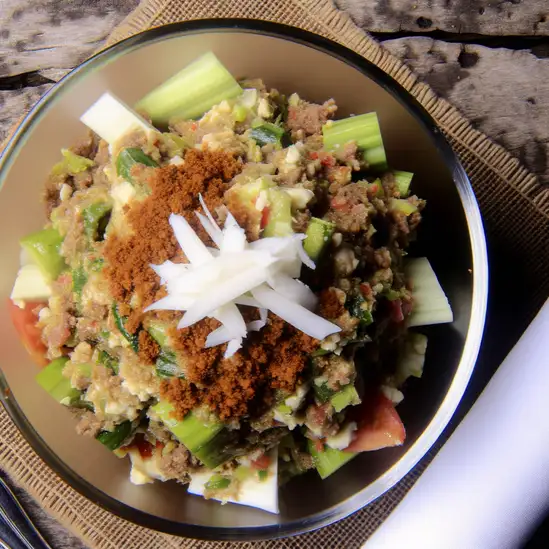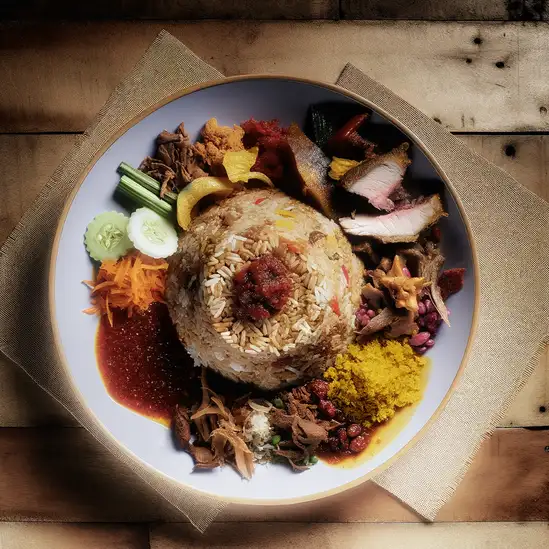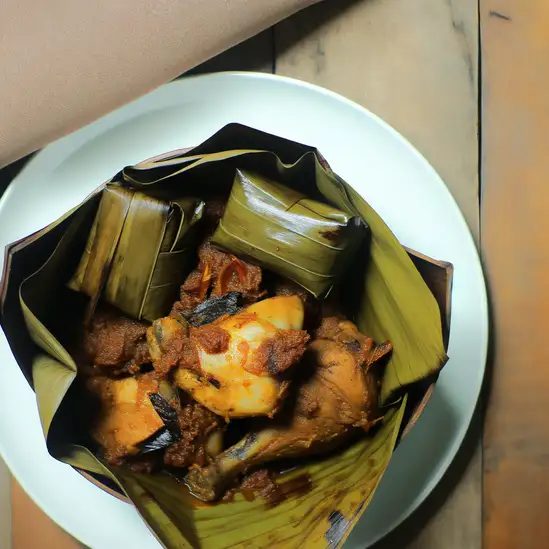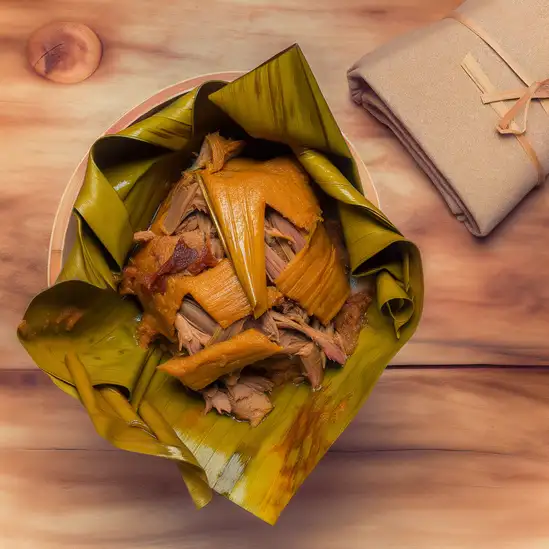



If you ever find yourself wandering through Bali,Gianyar is the kind of place that wraps around you like a warm,familiar blanket. It’s not just a city; it’s a heartbeat of Balinese culture pulsing with life and tradition. As you stroll through its bustling markets,the air is thick with the scent of incense and fresh spices,mingling with the earthy aroma of wet rice fields nearby. You’ll hear the rhythmic clang of gamelan music drifting from temple ceremonies,a sound that feels both ancient and alive. Gianyar’s streets are a vibrant tapestry of color and movement—women in bright kebayas weaving through crowds,artisans crafting intricate wood carvings,and children darting past with laughter that feels contagious. The city’s soul is deeply tied to its art and spirituality,with temples like the famous Goa Gajah offering a quiet,almost mystical contrast to the lively town center. Here,tradition isn’t just preserved; it’s celebrated daily. Food lovers will find themselves enchanted by the local warungs where you can savor dishes like ayam betutu,rich with spices that linger on your tongue,or sip on freshly brewed Balinese coffee while watching the world go by. Gianyar invites you to slow down,breathe in the vibrant culture,and feel connected—not just to a place,but to a way of life that’s both timeless and welcoming.
The information on this page is currently being reviewed by Tripkliq and should be used as a guide only
Eng word: Hello
Eng pronunciation: Om Swas-tee-as-too
Local language: Om Swastiastu
Eng word: Goodbye
Eng pronunciation: Om Shan-tee Shan-tee Shan-tee Om
Local language: Om Shanti Shanti Shanti Om
Eng word: Thank you
Eng pronunciation: Sook-smah
Local language: Suksma
Eng word: How much
Eng pronunciation: Nyak koo-deh
Local language: Nyak kude
Eng word: Toilet
Eng pronunciation: Kah-mar keh-cheel
Local language: Kamar kecil
Eng word: Help me
Eng pronunciation: Too-loong-een tee-ang
Local language: Tulungin tiang
Eng word: Yes
Eng pronunciation: Eeng-gee
Local language: Inggih
Eng word: No
Eng pronunciation: Too-sing
Local language: Tusing
Eng word: Excuse me
Eng pronunciation: Am-poo-rah
Local language: Ampura
Gianyar was founded in 1771 by Dewa Manggis, a member of the Balinese royal family. The city has since grown into a cultural and historical hub in Bali.
The Gianyar Palace, also known as Puri Gianyar, is a significant historical landmark. It was built in the 18th century and remains a symbol of the city's royal heritage.
Goa Gajah, or the Elephant Cave, is an ancient sanctuary dating back to the 9th century. It features intricate carvings and is a popular tourist attraction.
Tirta Empul Temple, built in 962 AD, is a sacred water temple famous for its holy spring water. It is a place of purification for Balinese Hindus.
Gunung Kawi Temple, constructed in the 11th century, is an archaeological site with impressive rock-cut shrines. It is one of Bali's oldest and most significant monuments.
The Ubud Art Market, located in Gianyar, has been a center for traditional Balinese arts and crafts for centuries. It is a vibrant place to experience local culture.
Gianyar is renowned for its traditional Balinese dance and music. The city hosts numerous performances that showcase the rich cultural heritage of Bali.
The Tegallalang Rice Terraces in Gianyar are a UNESCO World Heritage site. These stunning terraces have been cultivated for over a thousand years and are a testament to Balinese agricultural ingenuity.
The Sacred Monkey Forest Sanctuary in Ubud, Gianyar, is home to hundreds of long-tailed macaques. It is a significant spiritual and ecological site.
In Gianyar, the most common Power Adaptor is Type C, Type F.



A Balinese version of satay, made from minced meat mixed with grated coconut and spices, wrapped around bamboo sticks and grilled.

A traditional mix made from vegetables, coconut, and minced meat, often flavored with rich spices and served as a side dish.

A mixed rice dish served with a variety of side dishes, including meats, vegetables, and sambal, showcasing the diverse flavors of Balinese cuisine.

Spiced chicken that is marinated and wrapped in banana leaves, then slow-cooked to infuse the flavors, often served with rice.

A traditional Balinese dish made of duck stuffed with spices, wrapped in banana leaves, and slow-cooked until tender.

Traditional Balinese snacks or cakes made from rice flour and coconut, often colorful and served during ceremonies and festivals.
Denpasar has this vibrant,lived-in energy that instantly pulls you in. It’s not the polished tourist hub you might expect from Bali,but rather the bustling heart where locals go about their daily lives with warmth and rhythm. Walking through its streets,you’ll hear the hum of motorbikes weaving through traffic,the chatter of market vendors calling out fresh produce,and the occasional clang of temple bells weaving into the city’s soundtrack. The air carries a mix of fragrant spices,sizzling street food,and the earthy scent of incense from nearby shrines.
What I love most about Denpasar is how it feels like a genuine slice of Balinese culture. The city pulses with tradition—colorful ceremonies unfold in the temples,and you’ll spot locals dressed in sarongs,carrying offerings with quiet reverence. At the same time,there’s a youthful buzz in the cafes and art spaces,where creativity bubbles alongside age-old customs. It’s a place where you can savor a plate of spicy babi guling from a humble warung,then wander through the art markets filled with intricate wood carvings and vibrant paintings.
Denpasar invites you to slow down and soak in the everyday magic—the warmth of the people,the rich smells,and the lively streets. It’s a city that doesn’t shout for attention but rewards those who take the time to explore its layers. If you want to experience Bali beyond the beaches,Denpasar offers a genuine,colorful glimpse into the island’s soul.
If you ever find yourself craving a place where time slows down just enough to savor every moment,Ubud is that kind of sanctuary. Nestled in the lush heart of Bali,this town hums with a gentle rhythm—part spiritual retreat,part creative hub. Walking through its streets,you’ll catch the scent of frangipani and incense mingling with the earthy aroma of wet rice fields nearby. The air feels alive,filled with the soft chatter of locals,the distant clink of gamelan music,and the occasional call of a rooster greeting the dawn.
Ubud’s charm lies in its seamless blend of tradition and artistry. Temples with intricate stone carvings peek through vibrant greenery,while open-air markets burst with colorful textiles,hand-carved masks,and fresh tropical fruits. You can sip on a rich,earthy cup of Balinese coffee at a cozy café,watching artisans craft delicate silver jewelry or dancers rehearsing for an evening performance. It’s a place where culture isn’t just observed—it’s lived and breathed.
What really stays with you is the warmth of the people and the sense of connection to nature and spirit. Whether you’re wandering through the terraced rice paddies,joining a yoga class overlooking the jungle,or simply sitting by the Campuhan Ridge Trail at sunset,Ubud invites you to slow down,breathe deeply,and soak in a world that feels both ancient and vibrantly alive.
Imagine stepping into a place where the sun kisses your skin,the ocean hums a steady rhythm,and the air carries the scent of salty waves mixed with sizzling street food. That’s Kuta for you—a lively beach town in Bali that pulses with energy but still feels effortlessly laid-back. From the moment you arrive,you’re wrapped in a warm,welcoming vibe that’s both vibrant and relaxed. The beach stretches wide,dotted with surfers catching waves and locals selling fresh coconut water,while the sunset paints the sky in fiery oranges and pinks.
Walking through Kuta’s streets,you’ll hear a blend of languages,laughter,and the occasional beat of gamelan music drifting from a nearby warung. The town’s character is a colorful mix of traditional Balinese culture and a buzzing international crowd,creating a unique atmosphere where ancient temples sit just blocks away from lively markets and buzzing nightlife. The aroma of satay grilling over open flames mingles with the tropical flowers blooming nearby,inviting you to slow down and savor every moment.
What makes Kuta truly special is how it balances excitement with ease. Whether you’re learning to surf,bargaining for handmade crafts,or simply lounging on the beach with a fresh mango smoothie in hand,there’s a genuine warmth in the air. It’s a place that invites you to dive into its rhythm,soak up its stories,and leave with a heart full of memories and a little more sun-kissed than when you arrived.
If you’re dreaming of a place where laid-back beach vibes meet vibrant energy,Seminyak is that sweet spot. Imagine waking up to the gentle hum of waves brushing against golden sands,the salty breeze mingling with the scent of frangipani and sizzling street food. It’s a place where mornings start slow with a fresh coconut in hand,and the day unfolds with a mix of chic boutiques,bustling markets,and cozy cafes spilling onto sun-dappled streets.
What really makes Seminyak special is its effortless blend of tradition and trend. You’ll find ancient Balinese temples tucked between sleek beach clubs,and local artisans selling handwoven textiles right next to stylish galleries. The town pulses with a creative spirit—whether it’s the vibrant street art,the soulful sounds of gamelan music drifting from a nearby ceremony,or the tantalizing aroma of spices from warungs cooking up authentic dishes.
As the sun dips low,Seminyak transforms. The sky blazes with fiery oranges and pinks,and the beach comes alive with laughter,clinking glasses,and the soft strum of guitars. Dinner might be fresh seafood grilled over coconut husks or a plate of spicy satay enjoyed under twinkling fairy lights. It’s a place that invites you to slow down,soak in the moment,and savor the rich tapestry of sights,sounds,and flavors that make this corner of Bali unforgettable.
If you’re craving a place where laid-back beach vibes meet a buzzing creative spirit,Canggu is where you want to be. Imagine waking up to the gentle crash of waves,the salty breeze mingling with the rich aroma of freshly brewed coffee from a nearby café. It’s a place where surfers paddle out at dawn,and yogis stretch under swaying palm trees,all while the sun paints the sky in soft pastels. The energy here feels both relaxed and alive,like the town itself is breathing in rhythm with the ocean.
Walking through Canggu’s streets,you’ll notice a vibrant mix of rustic warungs serving up spicy sambal and fresh seafood,alongside trendy spots dishing out smoothie bowls and artisan espresso. The soundscape is a blend of laughter,indie tunes spilling from open windows,and the occasional clink of glasses as friends toast to another perfect day. The rice paddies that frame the town add a lush,green contrast to the sandy shores,reminding you that this place is as much about nature as it is about culture.
What really makes Canggu special is its welcoming spirit. It’s a melting pot of locals,expats,and travelers who all seem to share a love for good vibes and genuine connection. Whether you’re exploring street art,hunting down the best taco stand,or simply watching the sunset from a beach bar,there’s a warmth here that makes you feel like you’ve found a second home. Trust me,once you’ve felt Canggu’s pulse,you’ll want to come back again and again.
Imagine stepping into a place where the ocean breeze carries the scent of salt and frangipani,and the rhythm of traditional gamelan music hums softly in the background. That’s Lombok for you—a vibrant island that feels both alive and laid-back at the same time. Unlike its flashier neighbor Bali,Lombok has this raw,untouched charm that invites you to slow down and really soak in the moment. The beaches here aren’t just pretty; they’re vast stretches of powdery white sand meeting turquoise waves that seem to whisper stories of ancient fishermen and island life.
Walking through the local markets,you’ll hear the lively chatter of vendors selling fresh spices,tropical fruits,and handwoven textiles. The air is thick with the aroma of grilled satay and sweet coconut,tempting you to try every bite. The Sasak people,with their warm smiles and rich traditions,add a deep cultural layer to the island’s character. You might catch a glimpse of their intricate weaving or hear tales of their unique ceremonies,which feel like a bridge between past and present.
What really stays with you about Lombok is its balance—between adventure and tranquility,nature and culture. Whether you’re hiking up Mount Rinjani’s misty slopes,diving into vibrant coral reefs,or simply sipping a fresh coconut by a quiet beach,there’s a genuine sense of connection here. It’s a place that doesn’t just fill your camera roll but leaves a quiet imprint on your heart.
Money changers offer attractive exchange rates but shortchange tourists by using sleight of hand or hidden fees.
Scammers pose as representatives of charities and solicit donations, which are pocketed instead of going to a legitimate cause.
Scammers sell counterfeit tickets to attractions or tours that don’t exist, leaving tourists stranded.
Unlicensed individuals pose as tour guides and charge high fees for subpar or incomplete tours.
Tourists are charged for pre-existing damage to rented motorbikes or are forced to pay inflated repair fees for minor scratches.
Vendors in tourist-heavy areas inflate prices significantly, especially if tourists are unfamiliar with local bargaining practices.
Thieves target distracted tourists in crowded areas or on motorbikes, snatching bags or valuables.
Street vendors target tourists with inflated prices for food, drinks, or souvenirs, often charging several times the local rate.
Drivers refuse to use meters and charge exorbitant flat rates, especially for short distances or trips to popular destinations.
Tourists are pressured into making 'mandatory donations' at temples, which are pocketed by scammers rather than going to the temple itself.
Indonesia has very strict drug laws, and this includes Gianyar. The possession, use, or trafficking of illegal drugs can result in severe penalties, including long prison sentences and even the death penalty. Tourists should avoid any involvement with illegal drugs and be cautious about any substances they are carrying or consuming.
In Gianyar, Indonesia, smoking is generally allowed in public places, but there are restrictions. Smoking is prohibited in certain areas such as schools, healthcare facilities, places of worship, and public transportation. Many restaurants and hotels have designated smoking areas. It is advisable to look for 'No Smoking' signs and adhere to local regulations to avoid fines.
Vaping is subject to similar regulations as smoking in Gianyar. While it is not explicitly banned, it is recommended to use vaping devices in designated smoking areas. Public awareness and acceptance of vaping may vary, so it is best to be discreet and respectful of local customs and regulations.
What are other people saying about Gianyar?
Recent Social posts about Gianyar
There is nothing to show you for now.